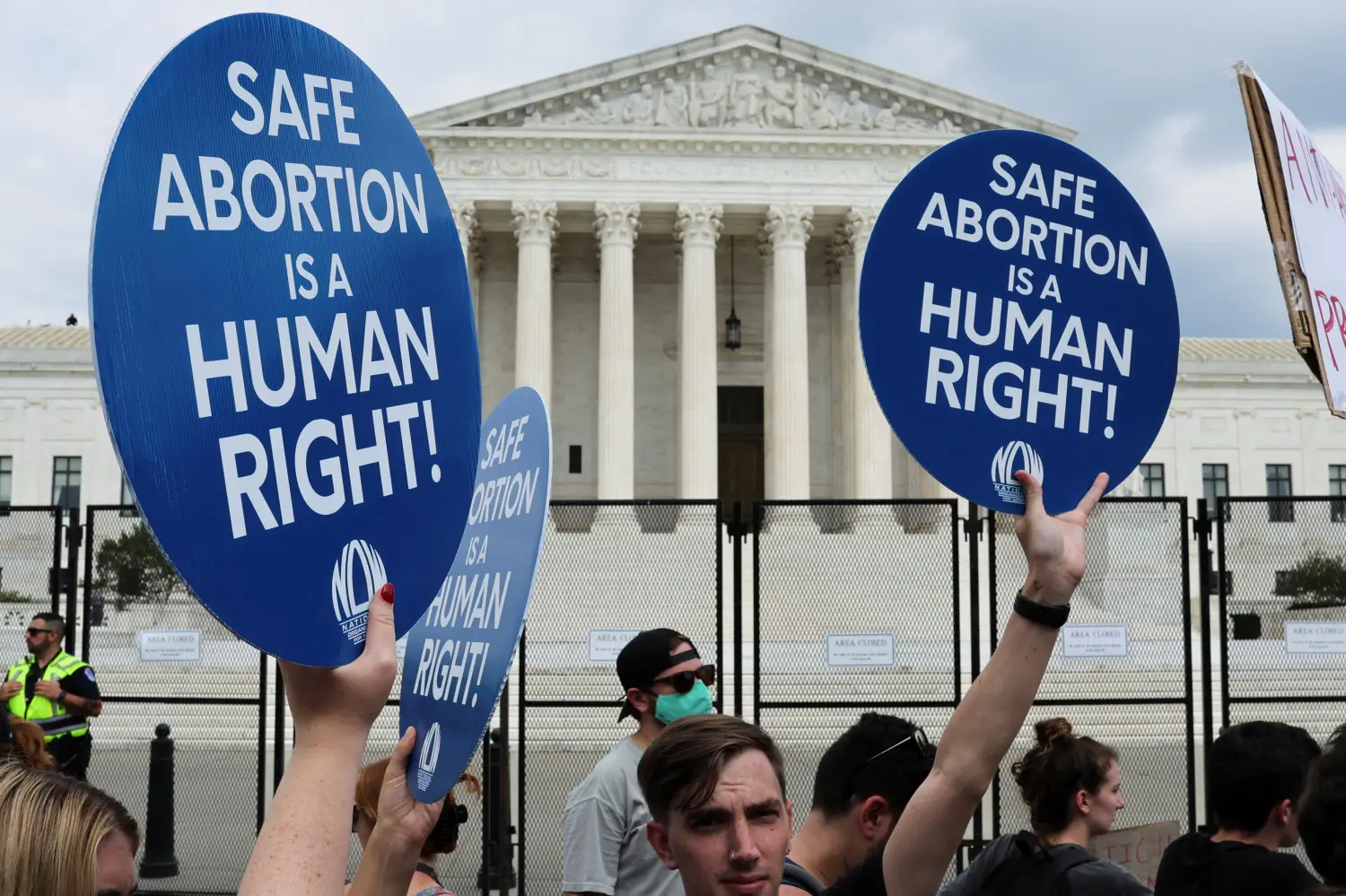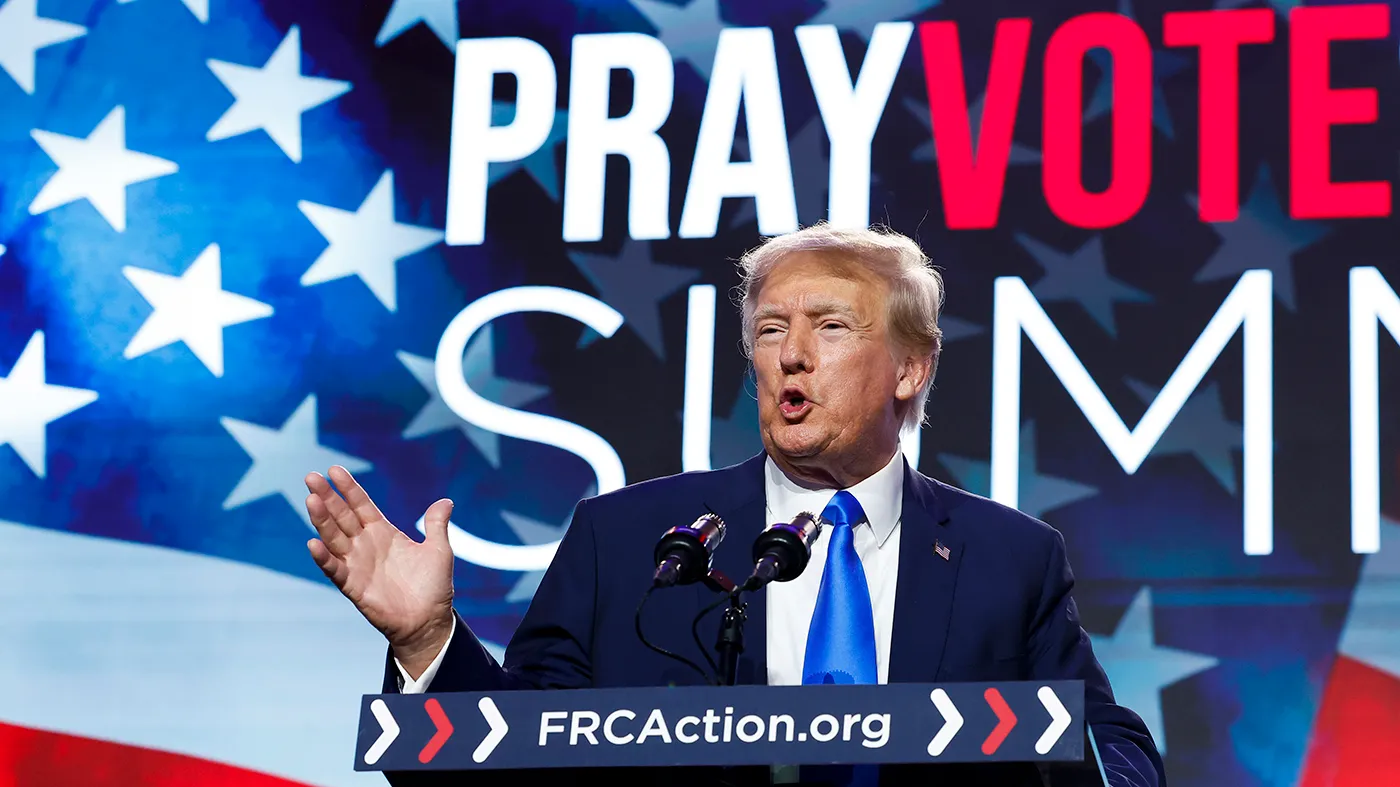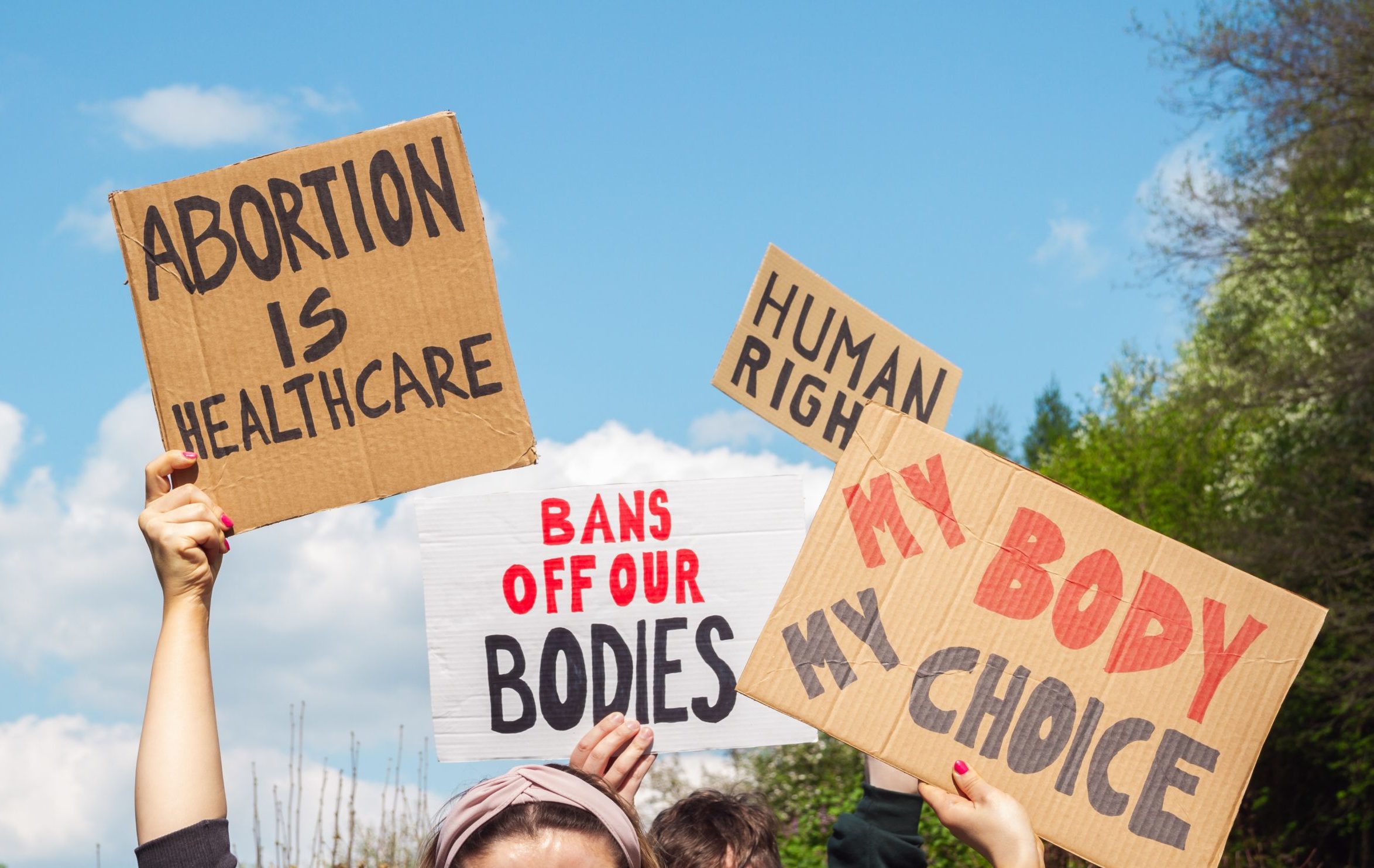The forthcoming maneuver could potentially be a game-changer in the electoral arena—or it could drive a wedge through his own supporters.
Donald Trump is hinting at a nationwide abortion policy. Responding to President Joe Biden’s pledge to “restore Roe v. Wade as the law of the land” (assuming he remains in office long enough), the former president and 2024 Republican nominee have suggested the possibility of a federal restriction on abortion procedures, likely around the 15th week of pregnancy, aiming to “satisfy both sides” in the run-up to the general election.
It marks a daring move from the former president, a trait he’s well known for. While most Republican figures and their advisors have maintained silence on the issue of abortion, at least until the midterm elections on November 6, Trump’s inclination to go against the grain is evident. In an election season that could heavily feature abortion as a central issue, clarity on the options before voters come November would be a welcome change.
The notion that such a move might appease both sides is even more audacious. Unlike matters such as the national budget, the abortion debate revolves around two diametrically opposed principles: one advocating for the sanctity of all human life and the other arguing that some lives hold more value than others.

Trump’s Quest for an Abortion Middle Ground: Can It Succeed? (Credits: Brookings Institution)
Compromise on this matter is seen as outright betrayal, particularly by those on the left. For instance, despite the significant disparity in the number of abortions prevented, 15-week abortion bans are met with as much disapproval from left-leaning voters as bans at 6 weeks.
Polls conducted by NARAL among pro-abortion voters overwhelmingly reject the notion that a 15-week limit constitutes a compromise; instead, they often depict it as an extreme stance. It’s challenging to envision any form of abortion restriction—whether based on timeline, cost, or other factors—that wouldn’t trigger a similar reaction.
Republicans, however, don’t seem to share the same steadfastness. Despite decades of affirming the belief that life begins at conception, their readiness to settle for a 15-week restriction seems somewhat lackluster. The vast majority of abortions nationwide occur before the 15th week, with only 6 percent happening thereafter.
The idea of finding a middle ground inherently involves concessions. It begs the question of why the right continues to make them while the left remains steadfast. Abortion activists have increasingly framed anything short of unrestricted abortion as tyranny, denying women access to vital reproductive healthcare.

Donald Trump (Credits: The Hill)
Instead of pushing back against this narrative with facts, many on the right have either recoiled or offered apologies. Over time, a law restricting abortions after the 15th week of pregnancy might not only be seen as a necessary compromise but even as a significant victory. After all, Virginia permits abortions up to the 27th week of pregnancy. We should aspire to be better than that.
In this scenario, we find ourselves celebrating marginally less loss of life. The choice seems to be between total death and something less than total death, the extent of which remains uncertain. However, it’s essential to question when a party ends up conceding more than it gains.
For instance, a national 15-week ban is unlikely to pass, even with a Republican administration. Despite GOP polling suggesting that the compromise lies somewhere in the second trimester, every referendum on the matter at the ballot box has proven otherwise, a fact not lost on Republican lawmakers in both the House and Senate.
Part of the reason for this resistance is likely the lack of a compelling rationale for the 15-week mark; it’s merely a median, and medians rarely stir passion. People, especially women, are more likely to mobilize when they perceive a threat to their rights. Perhaps there’s room to leverage this aspect.
All these factors paint a bleak picture for the unborn. With the increased availability of chemical abortifacients since 2020 and the passage of numerous pro-abortion laws in blue states post-Dobbs decision, the total number of reported abortions in the United States has reached a record high in recent months, despite declines seen in individual states like Texas and Tennessee.
Nevertheless, while the notion of satisfying both parties may seem far-fetched, there’s one position that would genuinely please the majority of women—not just a superficial satisfaction stemming from medication, identity confusion, career struggles, or other societal pressures.
It’s a policy that results in more babies rather than fewer, one that shields women from the trauma, guilt, and depression often associated with post-abortion experiences. It’s a law that recognizes and cherishes the best aspects of their nature rather than catering to the worst.
























